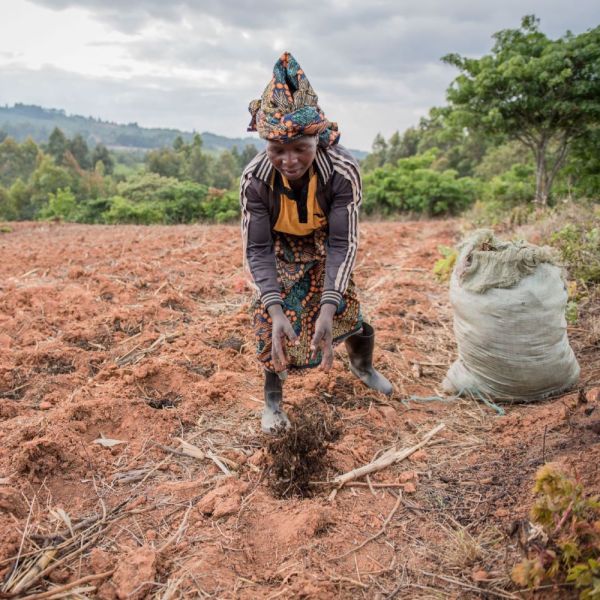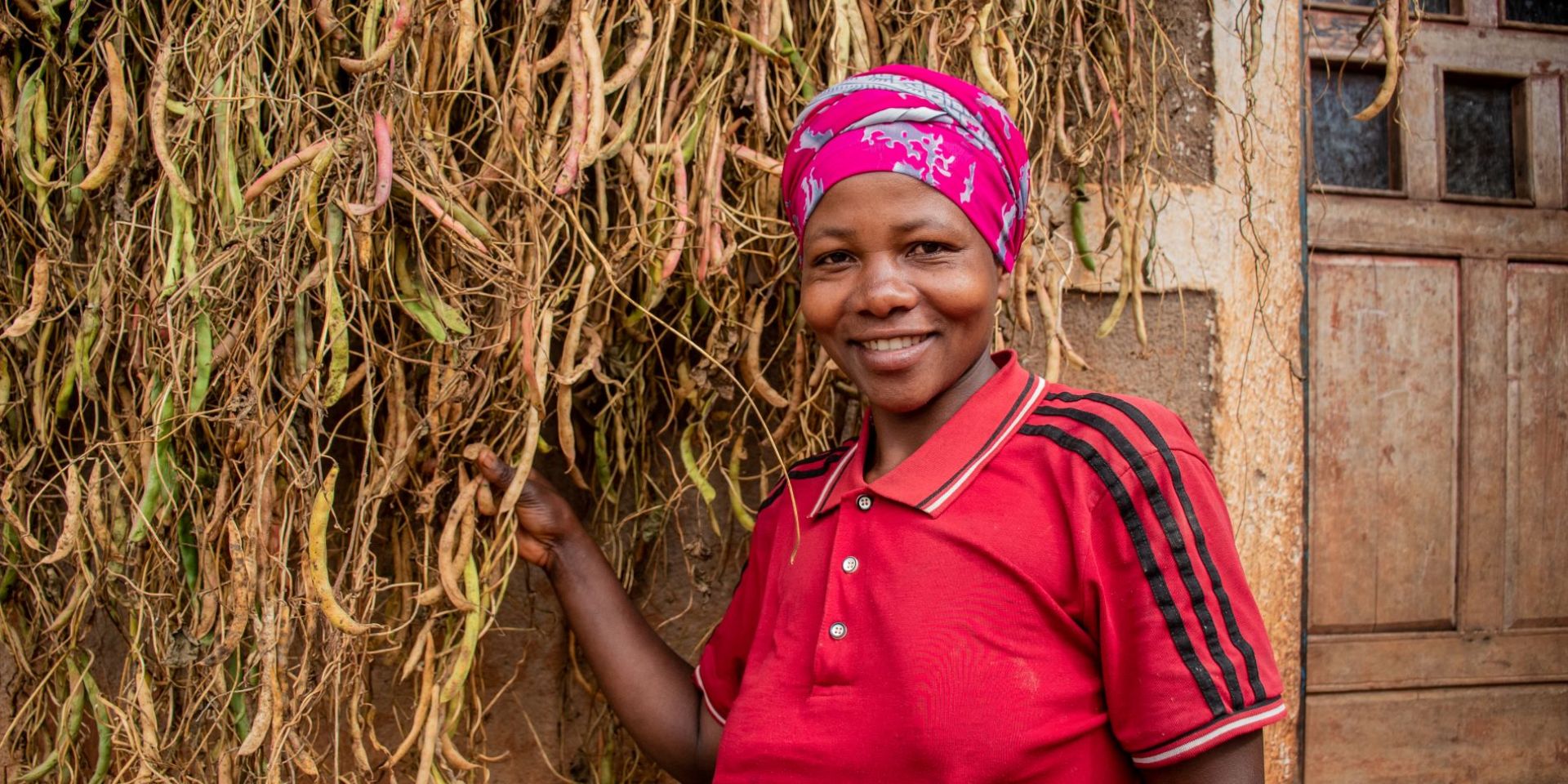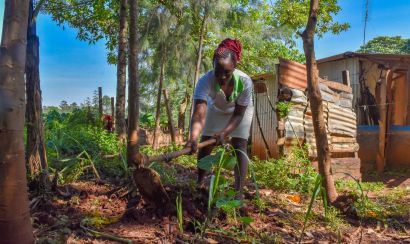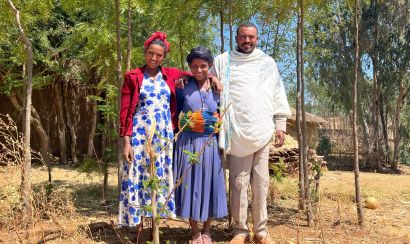Our impact in Burundi doubled last year - here's how
Since 2011, One Acre Fund has been working with smallholder farmers in Burundi to help them build sustainable pathways to prosperity. In recent years, our work in Burundi has expanded significantly, increasing the localities we serve and farmers' income.
Burundi’s economy is deeply rooted in agriculture, which contributes about 40% to GDP and provides 95% of the food supply (Climate Change Laws of the world). However, about 70% of smallholder farmers, who make up the backbone of this sector, still face food insecurity caused by the effects of climate change, soil acidity, ineffective farming techniques, and lack of access to quality farming inputs.
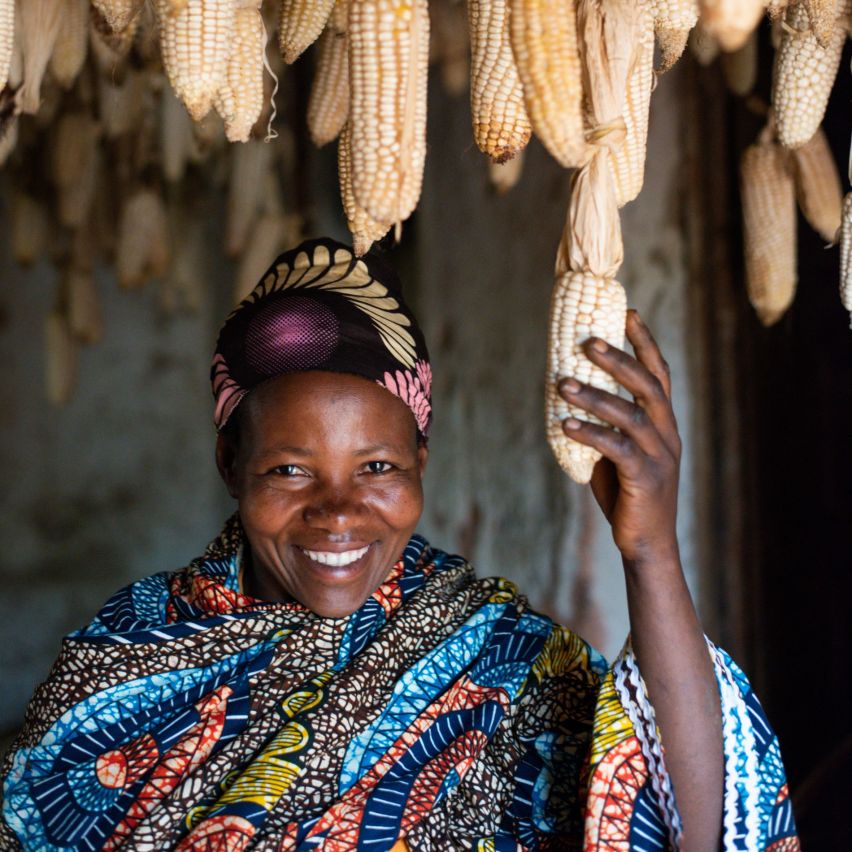
"Before the program, we did not grow enough food to feed our family. We had to choose between buying food and paying school fees. I am happy with my harvest now. We have enough food to feed our family comfortably and even surplus to sell."
Expanding our operations to increase impact
Since 2022, thanks to an agreement with the Government of Burundi, we have been able to significantly expand our program, enabling us to reach even more farmers. We have also partnered with 30 local farmer cooperatives, providing them with access to our full-service program—distributing planting materials and conducting farming training— and providing capacity-building and market-access linkages.
In 2024, the number of co-operatives we will serve will increase to 100 as we expand our services to reach even more farmers.
This year we also aim to serve close to 300,000 farmers, up from just over 200,000 in 2023. This expansion means increasing the number of our farmer-facing staff who run trainings for farmers to ensure they get the most out of our products and services and can adapt to challenges like climate change.
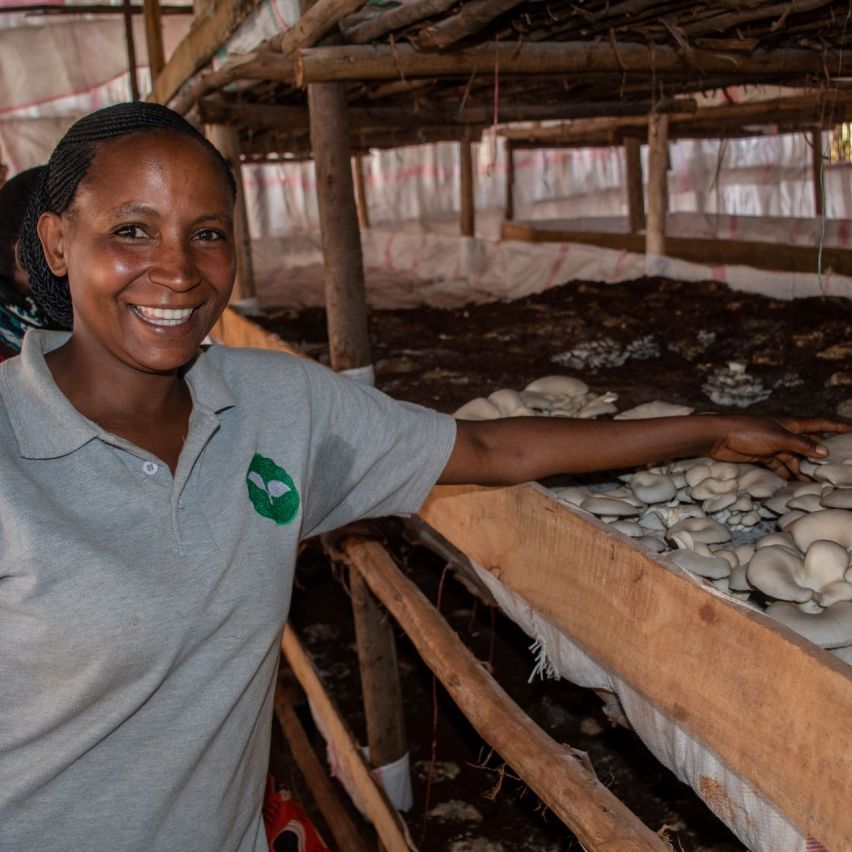
“As a cooperative, we benefit from several collective and individual development projects. When we work as a group, we combine our efforts, and our output is much higher. What's more, the various training courses we receive help us stay informed about the latest farming updates.” says
Promoting nutritional and income diversity
An important part of our work is encouraging farmers to embrace nutritional diversity. We do this by supporting farmers to expand their crop mix to include vegetables like amaranth, onion, and cabbage. In 2023, we distributed vegetable seed packages to 197 Burundian farmers, which we paired with comprehensive training on best practices for planting, maintaining, and harvesting vegetables.
As well as ensuring farmers get the right nutrition, vegetable farming also opens up new income streams for rural households. Unlike seasonal food crops such as grains, vegetables can be harvested a little each day, providing farmers with a continual source of income and food for consumption.
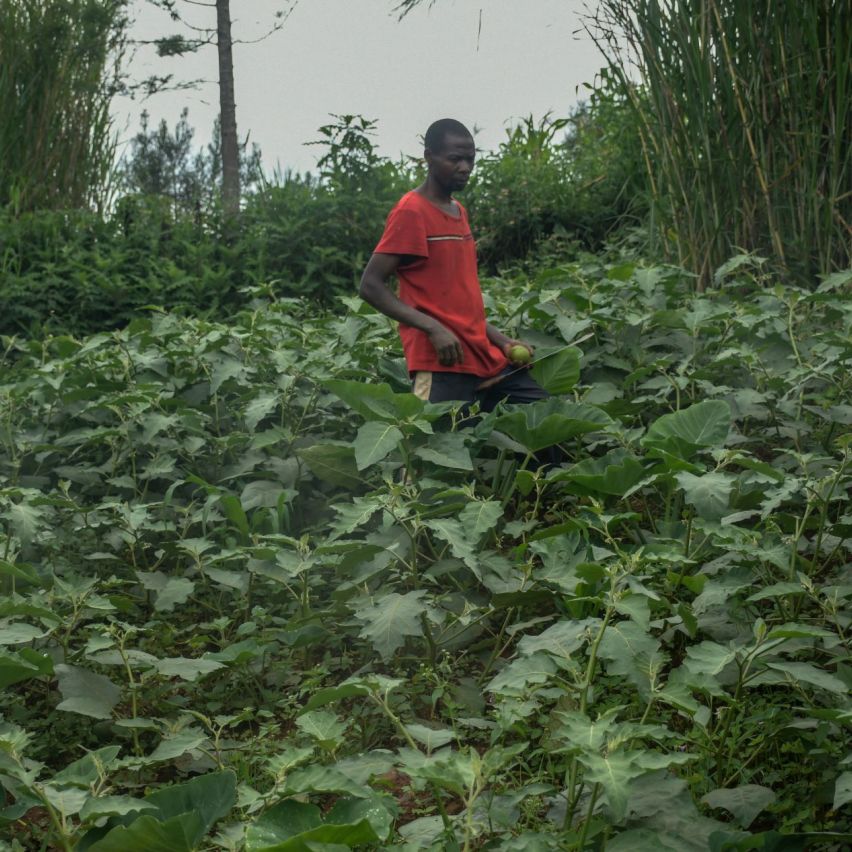
“I farm eggplants, onions, cabbage, amaranths, and tomatoes. I began vegetable farming to generate extra income, and my children required a balanced diet. Last season, I generated 2,500,000 FBU (870 USD) from selling my vegetables. With this money, I bought a cow and four pigs. I have also expanded my farmland.”
Harnessing Technology
Technology is reshaping the agricultural space by modernizing processes and enhancing data collection and analysis. By introducing tablets for our farmer-facing teams, we have enabled faster team communication, such as updates on stocks, and allowed our team to collect accurate farmer data much more efficiently. This means we have reliable data to make more informed decisions to better serve farmers. Additionally, the tablets provide our team with access to the latest training resources right at their fingertips.
Another way we’re harnessing technology to support Burundian farmers is by providing mobile phones on credit. Burundi has previously faced challenges with low mobile penetration, impacting farmers' adoption of mobile money. Through our provision of phones we have seen mobile phone ownership among farmers increase from 15% in 2021 to nearly 50% in 2023! This rise in mobile ownership among farmers will allow us to use SMS services to deliver valuable farming tips to support farmers during cropping seasons.
Building resilience to climate change
Climate change is a very real challenge for Burundian farmers, with erratic rainfall patterns and soil acidity threatening their harvests. By providing farmers with both the tools and knowledge to address these issues effectively we are helping them to build their climate resilience For example, in those regions with high soil acidity, we use interventions that educate farmers on the impact of soil acidity and guide them in the appropriate use of agricultural lime treatments.
In Burundi, most farms are located on slopes where heavy rain often leads to soil erosion, washing away topsoil and sometimes entire fields of crops. To mitigate these risks, we are training farmers on making contour lines and planting trees and grasses that help control soil erosion. We also train them on methods that help maximize soil health, like composting.
Another way we’re helping farmers to mitigate the effects of climate change is through our tree program. Through this program, we support farmers to plant both timber and fruit trees on their farms. With smallholder tree farming, the challenge often lies in ensuring the survival of these trees, as farmers often prioritize their primary crops over tree maintenance.
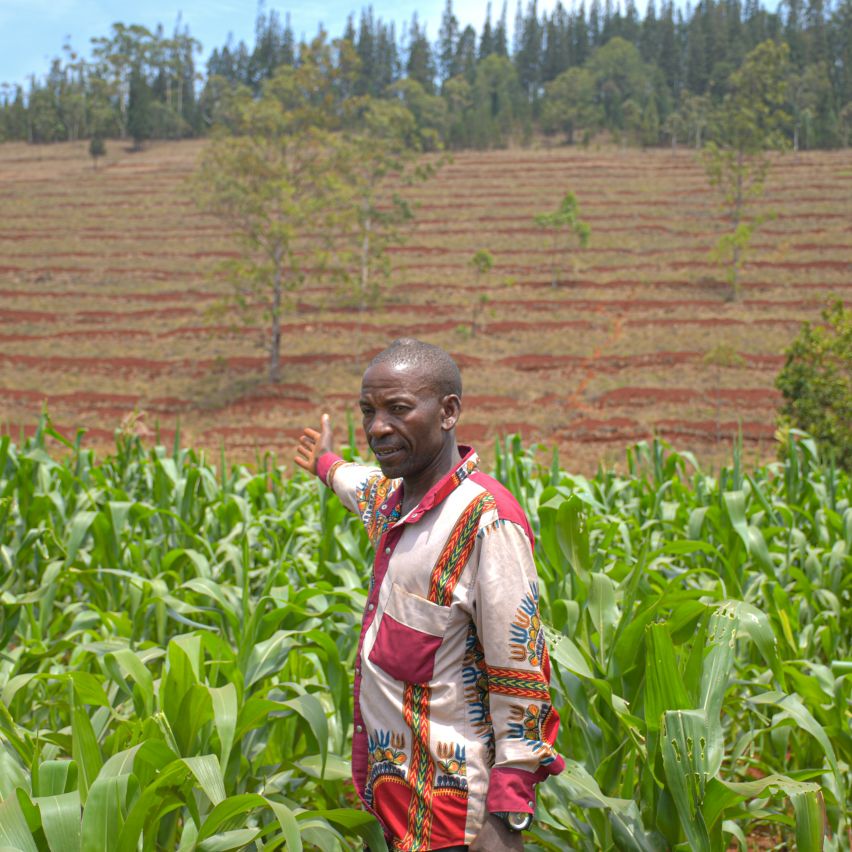
“In our locality, the main problems are soil erosion and overflowing rivers, which have caused our soils to lose fertility. One Acre Fund has trained us on drawing contour lines and has assisted us in setting up multiple tree nurseries. Each family receives trees to plant on their farms. We planted trees around the mountain, and overflowing water is no longer a threat. The change is evident, fields are incredibly green, and I am positive that I will harvest more.”
Invest in smallholder farmers
Farmers choose to work with One Acre Fund to improve their farms and their lives. Your donation helps One Acre Fund deliver services to a farm family for a full year.
